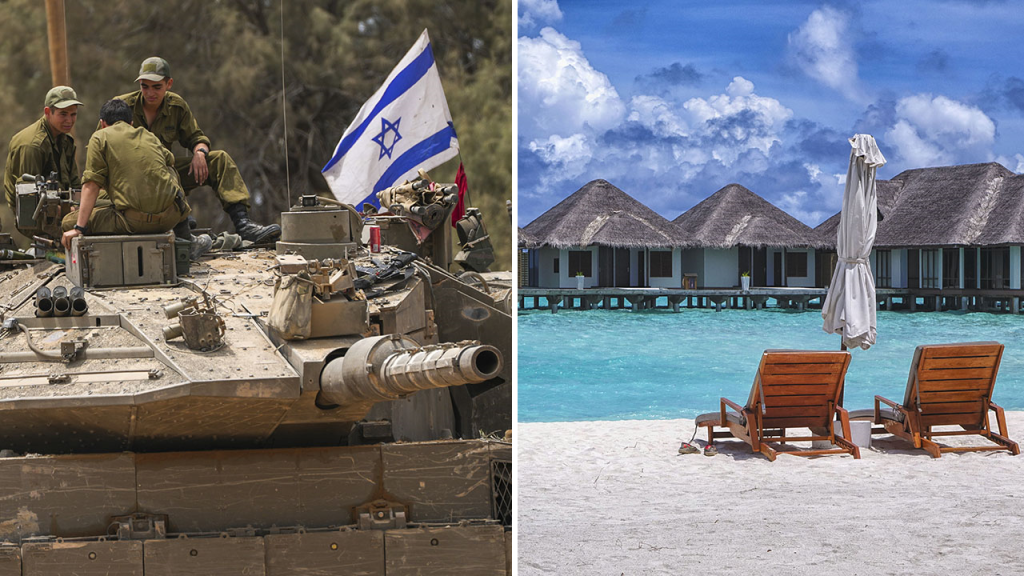The Maldives, a popular tourist destination in the Indian Ocean, has made headlines by banning Israelis from entering the country in response to the conflict in Gaza. President Mohammed Muizzu enacted the ban following a recommendation from his cabinet, which included amending necessary laws to prevent Israeli passport holders from entering the Maldives and setting up a fundraising campaign to assist Palestine. The ban is part of an effort to show solidarity with Palestine amidst the ongoing conflict in the region, and a nationwide rally is planned under the slogan ‘Maldivians in Solidarity with Palestine’.
The ban on Israeli tourists has sparked controversy, with Israel’s foreign ministry urging Israelis to stay away from the Maldives and consider leaving if they are already in the country. The U.S. State Department, which has provided significant foreign assistance to the Maldives in recent years, did not immediately comment on the ban. The Maldives constitution designates Islam as the state religion, requiring citizens to be Muslim and public officials, including the President, to be followers of Sunni Islam. The propagation of any religion other than Islam is a criminal offense in the Maldives, highlighting the religious tensions underlying the ban.
Last year, around 11,000 Israelis visited the Maldives, comprising a small percentage of total tourist arrivals. Rev. Johnnie Moore, president of The Congress of Christian Leaders, condemned the ban on Israeli tourists, stating that if the Maldives is not safe for Israelis, it is not safe for anyone. The Congress of Christian Leaders issued a global travel warning, cautioning Christians against traveling to countries where Islamic extremists influence national policy. The ban on Israeli tourists has raised concerns about the impact on the tourism industry in the Maldives and its reputation as a welcoming and diverse destination.
The ban on Israeli tourists comes in the wake of allegations that some employees of the United Nations Relief and Works Agency for Palestine Refugees in the Near East (UNRWA) participated in Hamas’ attack on Israel, which sparked the conflict in Gaza. Israel’s foreign ministry responded to the ban by advising Israelis to leave the Maldives to avoid potential difficulties should they encounter any issues while in the country. The ban highlights the complex political dynamics at play in the region and the influence of global conflicts on international relations and travel policies.
The ban on Israeli tourists in the Maldives underscores the ongoing tensions in the Middle East and the global implications of the conflict in Gaza. As countries take sides in the conflict, the impact is felt on various levels, from diplomatic relations to tourism policies. The ban has sparked debate and condemnation from various organizations and individuals, raising questions about religious freedom, international relations, and the role of tourism in promoting understanding and cooperation between nations. Moving forward, the ban may have lasting consequences for the tourism industry in the Maldives and its reputation as a destination for travelers of all backgrounds.
In conclusion, the ban on Israeli tourists in the Maldives reflects the complexities of international relations and the influence of global conflicts on travel policies. The decision to ban Israelis from entering the country has sparked controversy and raised questions about religious freedoms and the role of tourism in promoting understanding between nations. As the conflict in Gaza continues to unfold, the ban serves as a reminder of the broader implications of political tensions on travel and diplomacy. The fallout from the ban may impact the tourism industry in the Maldives and its reputation as a welcoming destination for visitors from around the world.


